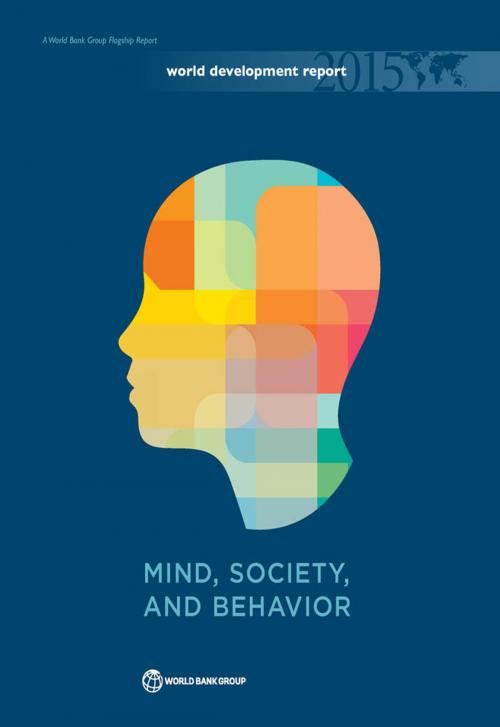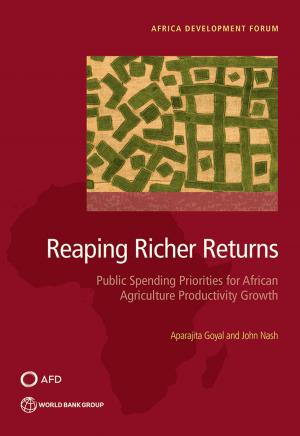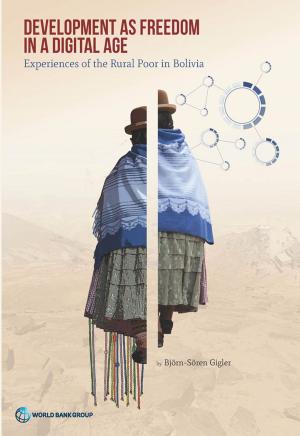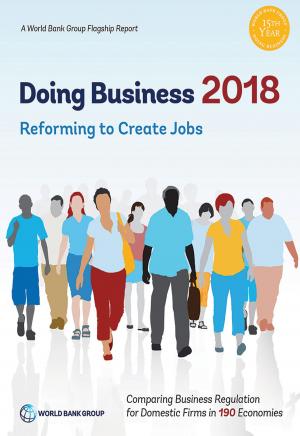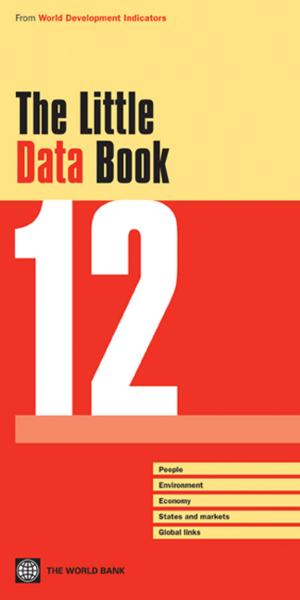World Development Report 2015
Mind, Society, and Behavior
Business & Finance, Economics, Economic Development, Marketing & Sales, Consumer Behaviour, Nonfiction, Social & Cultural Studies, Social Science| Author: | World Bank | ISBN: | 9781464803437 |
| Publisher: | World Bank Publications | Publication: | December 4, 2014 |
| Imprint: | World Bank Publications | Language: | English |
| Author: | World Bank |
| ISBN: | 9781464803437 |
| Publisher: | World Bank Publications |
| Publication: | December 4, 2014 |
| Imprint: | World Bank Publications |
| Language: | English |
Development economics and policy are due for a redesign. In the past few decades, research from across the natural and social sciences has provided stunning insight into the way people think and make decisions. Whereas the first generation of development policy was based on the assumption that humans make decisions deliberatively and independently, and on the basis of consistent and self-interested preferences, recent research shows that decision making rarely proceeds this way. People think automatically: when deciding, they usually draw on what comes to mind effortlessly. People also think socially: social norms guide much of behavior, and many people prefer to cooperate as long as others are doing their share. And people think with mental models: what they perceive and how they interpret it depend on concepts and worldviews drawn from their societies and from shared histories. The World Development Report 2015 offers a concrete look at how these insights apply to development policy. It shows how a richer view of human behavior can help achieve development goals in many areas, including early childhood development, household finance, productivity, health, and climate change. It also shows how a more subtle view of human behavior provides new tools for interventions. Making even minor adjustments to a decision-making context, designing interventions based on an understanding of social preferences, and exposing individuals to new experiences and ways of thinking may enable people to improve their lives. The Report opens exciting new avenues for development work. It shows that poverty is not simply a state of material deprivation, but also a “tax†? on cognitive resources that affects the quality of decision making. It emphasizes that all humans, including experts and policy makers, are subject to psychological and social influences on thinking, and that development organizations could benefit from procedures to improve their own deliberations and decision making. It demonstrates the need for more discovery, learning, and adaptation in policy design and implementation. The new approach to development economics has immense promise. Its scope of application is vast. This Report introduces an important new agenda for the development community.
Development economics and policy are due for a redesign. In the past few decades, research from across the natural and social sciences has provided stunning insight into the way people think and make decisions. Whereas the first generation of development policy was based on the assumption that humans make decisions deliberatively and independently, and on the basis of consistent and self-interested preferences, recent research shows that decision making rarely proceeds this way. People think automatically: when deciding, they usually draw on what comes to mind effortlessly. People also think socially: social norms guide much of behavior, and many people prefer to cooperate as long as others are doing their share. And people think with mental models: what they perceive and how they interpret it depend on concepts and worldviews drawn from their societies and from shared histories. The World Development Report 2015 offers a concrete look at how these insights apply to development policy. It shows how a richer view of human behavior can help achieve development goals in many areas, including early childhood development, household finance, productivity, health, and climate change. It also shows how a more subtle view of human behavior provides new tools for interventions. Making even minor adjustments to a decision-making context, designing interventions based on an understanding of social preferences, and exposing individuals to new experiences and ways of thinking may enable people to improve their lives. The Report opens exciting new avenues for development work. It shows that poverty is not simply a state of material deprivation, but also a “tax†? on cognitive resources that affects the quality of decision making. It emphasizes that all humans, including experts and policy makers, are subject to psychological and social influences on thinking, and that development organizations could benefit from procedures to improve their own deliberations and decision making. It demonstrates the need for more discovery, learning, and adaptation in policy design and implementation. The new approach to development economics has immense promise. Its scope of application is vast. This Report introduces an important new agenda for the development community.
